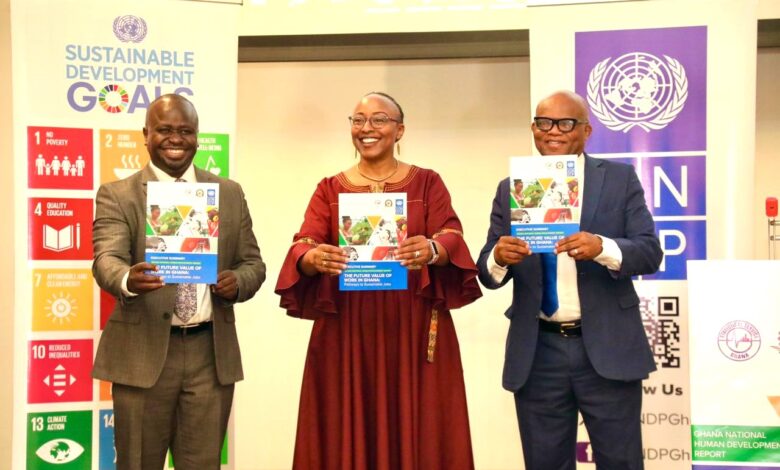65% Youth unemployment rate sparks concern for Ghana’s development goals

The 2023 Ghana Human Development Report (GNHDR) has unveiled a concerning statistic, that 65% of young Ghanaians aged 15-24 are facing joblessness.
Despite a decade of robust economic growth, the informal sector still dominates, comprising 75% of the workforce. Youth unemployment and underemployment persist as critical challenges.
Released by the United Nations Development Programme (UNDP) in collaboration with the Ghana Statistical Service (GSS) and the National Development Planning Commission (NDPC), the report underscores the impact of these issues on Ghana’s long-term development goals and human development. It stresses the necessity of targeted interventions to combat youth unemployment and foster inclusive economic growth.
Themed “The Future Value of Work in Ghana: Pathways to Sustainable Jobs,” the report advocates for bridging the gap between current opportunities and the future job market through strategic investments in human capital and infrastructure. Angela Lusigi, UNDP Resident Representative in Ghana, emphasized the importance of these investments for achieving long-term development goals and reducing unemployment.
The report calls for a reimagining of academic programs to include science, technology, engineering, arts, and mathematics (STEM/STEAM) education, along with entrepreneurial training to prepare youth for future job markets. Government Statistician Prof. Samuel Kobina Annim highlighted the report’s insights into the relationship between work and human development, urging inclusive growth policies and sustainable job creation.
Key recommendations include simplifying regulations and offering targeted training to formalize the informal sector, thereby creating stable job opportunities. Additionally, efficient infrastructure in energy, transport, water, ICT, and housing is deemed essential for the future of work.
Director-General of NDPC, Kodjo Esseim Mensah-Abrampa, stressed the importance of investing in infrastructure and promoting entrepreneurship to harness the potential of Ghana’s youth and informal sector.
As Ghana approaches critical milestones, including the 2030 Sustainable Development Goals (SDGs) and its centenary of independence in 2057, the report calls for a strategic focus on job creation, infrastructure investment, and educational reforms.
The successful implementation of the recommendations will require a collective effort from the government, private sector, civil society, and individuals, paving the way for a future where all Ghanaians benefit from decent work and improved living standards.




